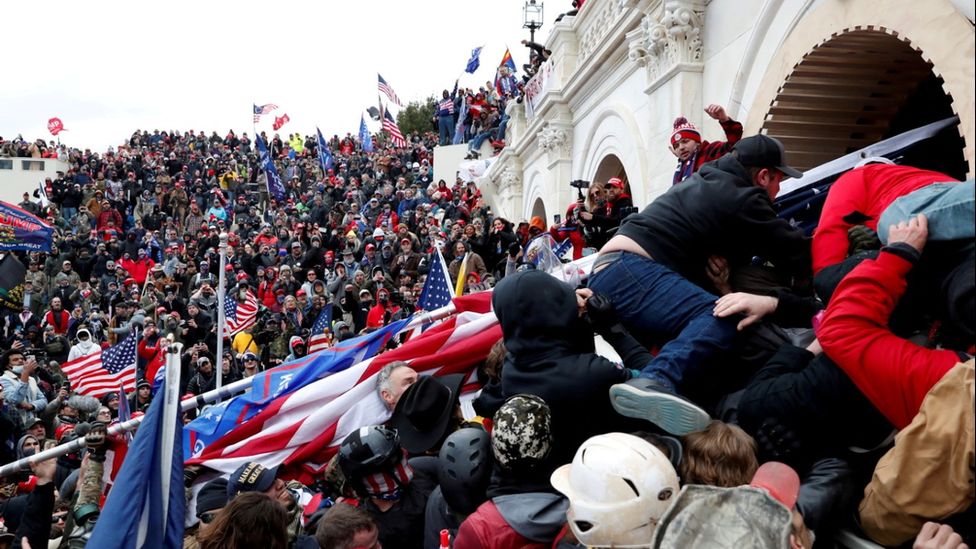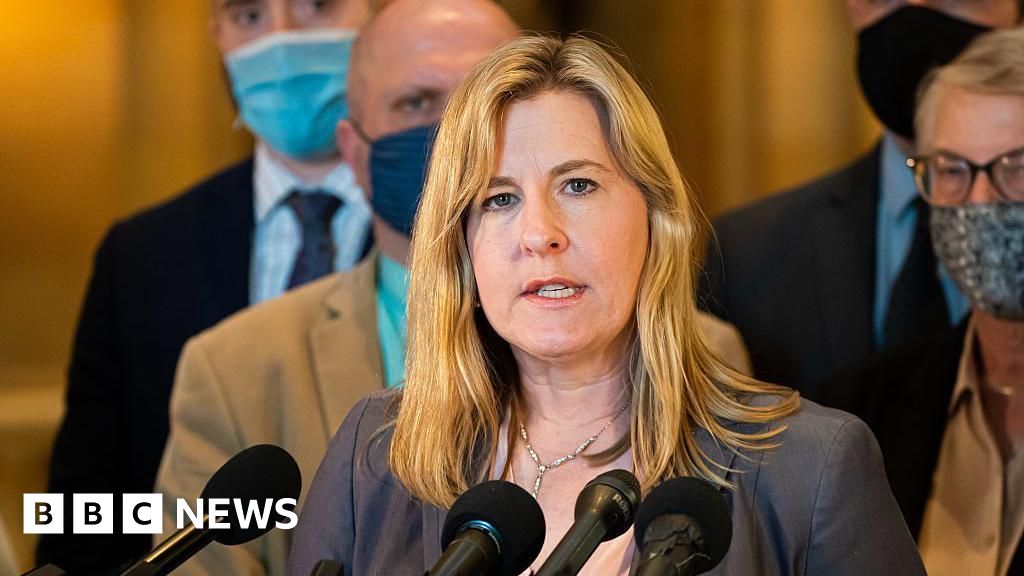ARTICLE AD BOX
 Image source, Reuters
Image source, Reuters
Prosecutors argued that four men "decided to take the presidential election into their own hands" at the start of a second major trial of militia members on seditious conspiracy charges in Washington.
It comes after the recent conviction of Oath Keeper leader Stewart Rhodes and Florida chapter leader Kelly Meggs on charges related to the storming of the US Capitol on 6 January 2021.
Prosecutors say the Oath Keepers plotted to stop the transfer of power from Donald Trump to Joe Biden.
The trial, which began on Monday, is a key test of whether the US government will successfully continue to use the seditious conspiracy law - which carries a possible sentence of up to 20 years in prison - to go after far-right groups associated with the Capitol riot.
The convictions of Rhodes and Meggs were the first under the law since 1995, although three other Oath Keepers tried alongside them were acquitted of the most serious charge.
The defendants in the latest trial are Roberto Minuta of Texas, Edward Vallejo of Arizona, and Joseph Hackett and David Moerschel, both from Florida.
They are also charged with other crimes, including obstructing an official proceeding and tampering with evidence. They have pleaded not guilty.
Federal prosecutor Troy Edwards said that by responding to Rhodes' call to action following the 2020 election, the defendants accepted an "invitation to sedition".
But defence lawyer Angela Halim argued that there was no concrete plan to disrupt proceedings and that Oath Keepers were in Washington that day to provide security, not to stop the government from carrying out its duties.
The alleged plot
In the previous trial, which lasted nearly eight weeks, prosecutors successfully argued that Rhodes and Meggs plotted to stop Congress carrying out the transfer of presidential power, using a huge volume of text messages and social media posts sent by the defendants themselves.
During the 2020 presidential election and after the vote, Oath Keepers spread unsubstantiated rumours of fraud and traded ominous warnings of violence.
Members of the militia transported firearms to a hotel room in suburban Virginia, just across from Washington DC, to avoid the city's strict gun control laws. On 6 January 2021, they planned to transport the stash into Washington using a "quick reaction force" if called upon by then-President Donald Trump - but the weapons were not used.
On Monday, jurors heard an audio recording of Mr Vallejo talking about "guerrilla war".
Mr Vallejo was keeping watch over the militia's weapon cache and texted Rhodes and others several times during the riot, indicating he was ready to take the guns to the Capitol, according to the indictment.
Meanwhile, the three other defendants were among Oath Keepers who entered the building in military-style "stack" formations, a single-file line with members holding on to the shoulders of the person in front of them.
Once inside, Mr Minuta shouted at police to leave the Capitol, while Mr Hackett and Mr Moerschel went looking for top Democrat Nancy Pelosi, court filings say.
How I escaped my father's militia
The son of Stewart Rhodes spent years planning to escape along with the rest of his family. How did he rebuild his life outside of the militia world?
Trials continue
Another seditious conspiracy trial involving members of the far-right Proud Boys, including leader Enrique Tarrio, will begin later in December.
A number of Oath Keepers and Proud Boys have already pleaded guilty to involvement in the riot.
On Friday two Proud Boys, Nicholas Ochs of Hawaii and Nicholas DeCarlo of Texas, were each sentenced to four years in prison after pleading guilty to obstruction of an official proceeding.
During the riot, the pair graffitied the name of their social media channel "Murder the Media" on Capitol doors and filmed themselves puffing on cigarettes inside the building.

 2 years ago
41
2 years ago
41








 English (US) ·
English (US) ·